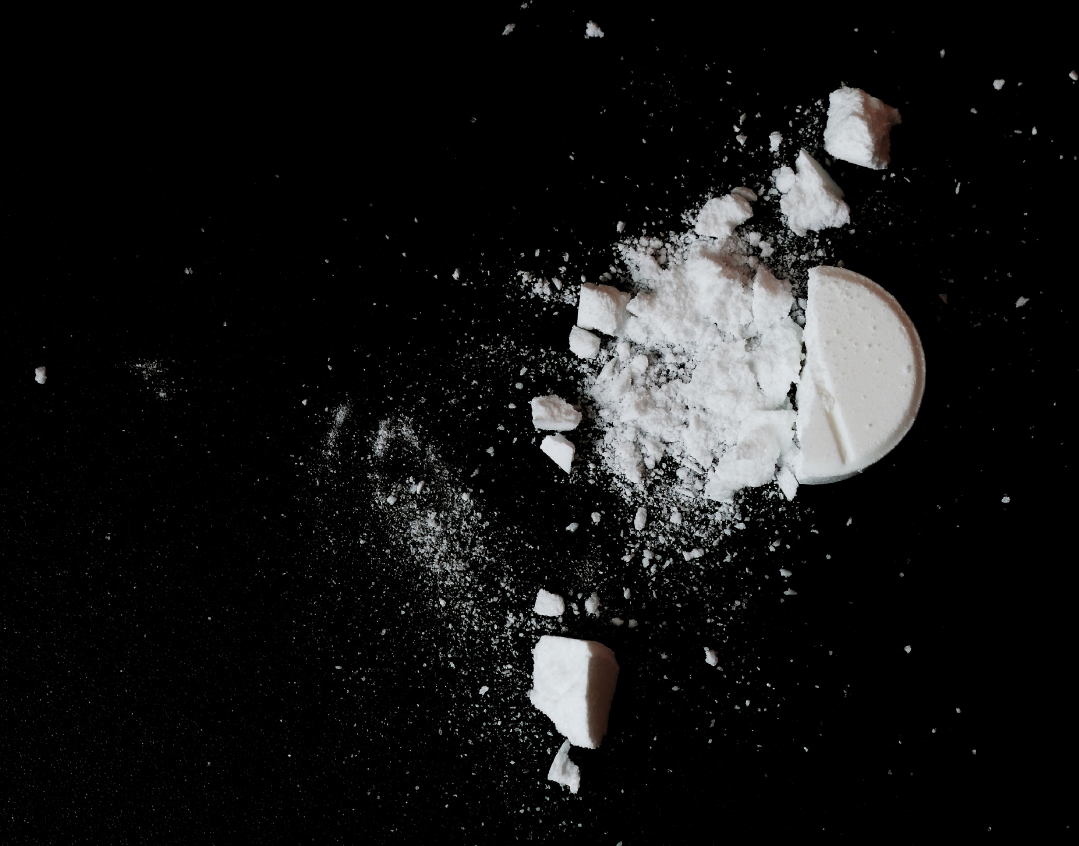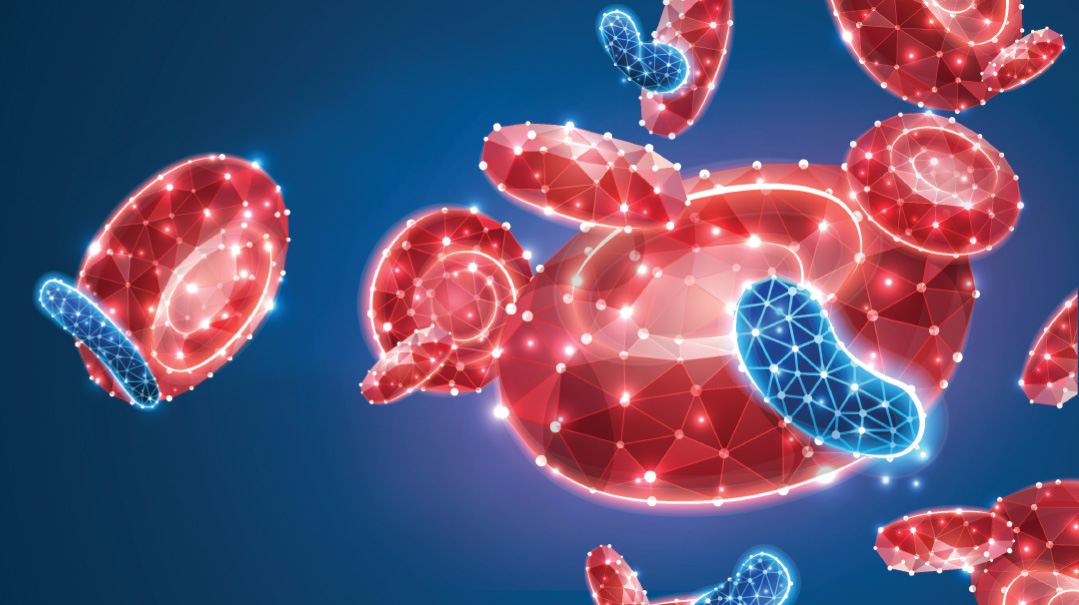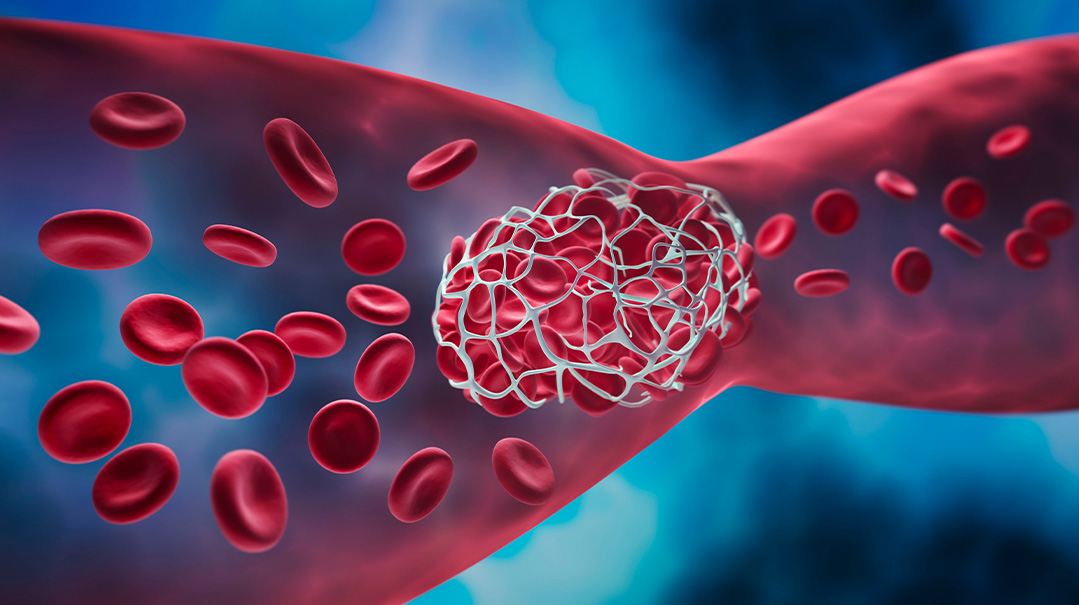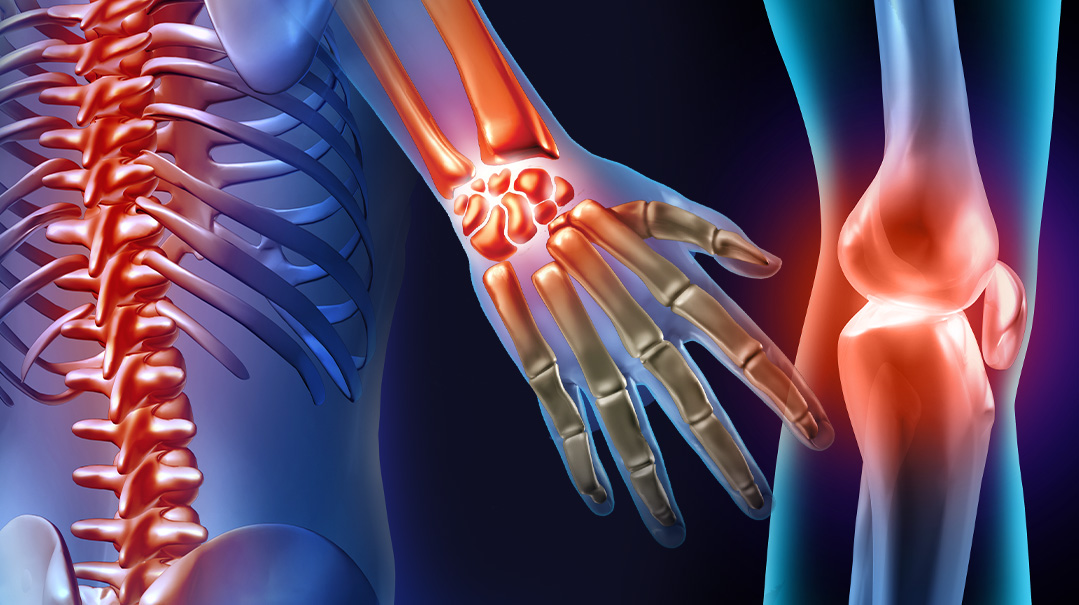The Rising Panic

For years, they said they were panic attacks. Then I discovered the truth
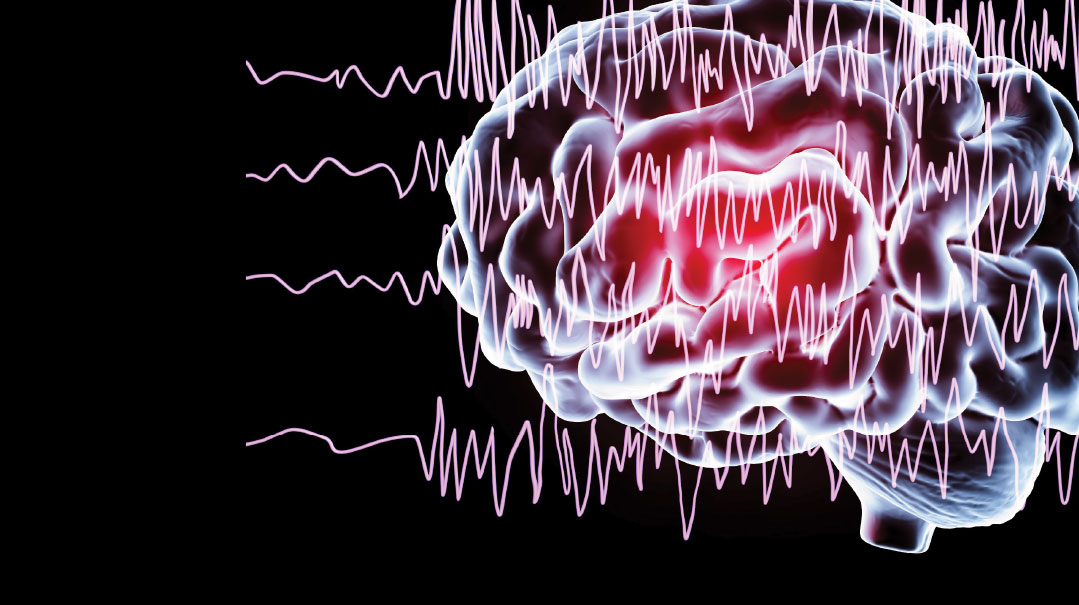
It started in tenth grade. I can easily conjure up the image of my 15-year-old self, slowly nodding off in geography class, only to be jolted awake by a buzzing sensation that traveled through my body, like a series of tiny electric shocks.
The feeling would wash over me every day, sometimes multiple times a day. It occurred so often that I basically knew when to expect it; if the bathroom became too steamy while showering, when I was drifting off in class, when I crossed at a certain street at the end of my block, as well as other places I no longer remember.
No one around me could tell when I was experiencing these weird sensations, there were no outward signs. I’d just sit or stand through it, and within 20 seconds the episode was usually over. Sometimes I’d repeat a mantra in my head — “breathe in, breathe out, breathe in, breathe out…” — until it passed.
A Panicked Diagnosis
I grew up in a happy, loving home and had a stable childhood filled with good friends and a lot of warmth. I always tended to be a bit of hypochondriac, especially when it came to health-related topics, but my anxiety never became serious or debilitating.
However, around the same time I began experiencing these electric shock feelings, I also developed a severe bout of “germiness.” I hated eating at crowded tables, with everyone breathing over my food; I found my parents’ silverware too gross to eat off of (even though my parents kept a very clean home), and I didn’t like eating anything other people had touched. I was quite thin and wasn’t gaining weight due to my aversions.
My parents became alarmed by my low weight, and they took me to a world-famous eating disorder clinic to have me evaluated. I looked at the skeletal figures roaming the beautiful grounds and thought to myself, They have it all wrong. I’m not anorexic.
Thankfully, the doctor my parents consulted agreed with my own assessment and said there was something else going on. When I explained I was experiencing the feeling of being grossed out by food as well as tingling electric shock feelings, he sent us to a psychologist, who diagnosed me with anxiety. I began working with a therapist to control my anxiety and get over my fear of germs.
Looking back, going to therapy was a pretty painless experience, as there was no deep emotional trauma to unpack or difficult family situations to work through. The appointments were relaxed, and I chatted with the therapist easily. We discussed my electric shock sensations, and she explained that the sensations I was experiencing were called panic attacks. She recommended I tell her if I felt like I was about to have one while in session, so we could work through it together.
One week, that’s what happened. I felt the strange feelings descend over me and told her I was having a panic attack. I waited patiently on the couch for it to pass — 10 seconds, 20 seconds, 30 seconds — while the therapist watched from her chair. The frightening wave passed over me, and it finished.
“Okay. It’s over.”
“That was it?” she asked, eyes wide.
“Yeah.”
“So fast?”
“Yup.” I shrugged.
I have no idea what we talked about for the rest of the session and honestly, over 15 years later, I don’t even remember the therapist’s name. But I’ll never forgot her face when she said, “That was it?” Because if there was anyone who could have realized there was something else going on, it was her.
Because panic attacks don’t last 30 seconds.
Licensed therapists should know that.
A Thing of the Past
Once I was given the diagnosis of anxiety, I let it define me to a certain extent. I had a healthy social life in high school, with best friends and camp and high school productions. But sometimes I bowed out of extra outings because I was exhausted.
At the time, my friends just saw me as more of a homebody, or possibly lazy. On Shabbos, I usually slept a full doughnut. As high school ended and I headed off to seminary in Eretz Yisrael, my symptoms began to ease. I’d still get attacks at times, and I was often exhausted, but halfway through my year in Eretz Yisrael, I realized that the panic attacks had disappeared and any residual feelings I had regarding eating in crowded or unclean places were basically gone as well. By the time I headed back to the US, I was cured.
When I started dating my husband, I knew I had to bring up my anxiety and explain what I had suffered through in high school. While I hadn’t had symptoms for a long time, it was important to me that anyone I marry know exactly what my anxiety had looked like. I was very nervous before bringing it up, but my soon-to-be husband stayed calm, listening carefully while I tried to explain the panic attacks.
“I haven’t had any issues for two years now. It’s all gone.”
My husband thanked me for sharing my story with him and said that it sounded like it had been a rough patch, but he was happy to hear it was behind me and I was feeling better. We got married a few months later and started our life together. For well over a decade, my anxiety remained a part of my past, a distant memory… until the middle of my fifth pregnancy
Back to the Present
It had been a rough pregnancy physically, which made everything more confusing and clouded my judgment. I had horrible morning sickness for the first four months.
During my second trimester, I was finally feeling better, so we went away to visit some family in another city to recharge. I’d just taken a shower when the most bizarre feeling washed over me. The only problem was it wasn’t only bizarre, it was also utterly familiar — I just hadn’t experienced it for a very long time.
As the sensation washed over me, my old mantra of “breathe in, breathe out” popped into my head, my hands went limp, and I sat down quickly, waiting for the panic and electric shocks to subside. When it was over, I walked shakily downstairs to find my husband.
“Do you remember I told you about the panic attacks I used to have in high school? Well, I just had another one.”
I sat on the couch. My entire body felt like it had been hit by a truck. I could barely talk through my exhaustion. My husband was empathetic, but it had been such a rough pregnancy that exhaustion and a brief moment of panic seemed like just a blip on the radar, nothing major, and we already knew it was simply a harmless panic attack — nothing more.
And so began a new normal. Every few days, often while showering or bathing my kids, or if I was sleep-deprived, I’d have a panic attack. It always started with a rolling sensation, like a fog rising up over my head, and suddenly I’d be in a place I knew like no other.
It was almost like being at home. Not just my home, but the most familiar home in the world, where I knew every crevice and every crack and all the images and feelings and sensations were so close to me, like I’d seen them a billion times before, like we were one. (Later, it was this very distinct feeling that would be the key to figuring out my diagnosis.)
The feeling would literally take my breath away because of its extraordinary weirdness and familiarity all at once. My heart would race until I felt like I was creeping up a large roller coaster, and then boom, hurtling down. My body would become very weak. I’d sit, put my head in my hands, and wait until I reached the bottom of the ride. Within a minute, it was over. I’d wash shampoo out of the kid’s heads, grab towels, cook dinner. Sometimes I’d feel very tired afterwards and need to lie down, but generally I just kept going.
This was life with panic attacks. At one point, I realized that the attacks were getting worse. While I didn’t quite lose consciousness during those seconds of terror, I also didn’t know my name. I didn’t know my children’s names. I couldn’t speak or move. In that brief minute, my mind was wiped clean, and all I saw was the utterly familiar rabbit hole.
It started to take longer for me to recover after the attacks as well. I stopped giving my kids long baths, just quick ones. I realized if there was an emergency, and I had a panic attack at that second, I wouldn’t be able to help them. I also made sure to keep the door open, so I could call for my older daughter if I felt I needed her help with the kids if I felt one starting.
I told my parents and close friends about the resurgence of my panic attacks. They all empathized and everyone agreed that it was normal, considering how hard the beginning of my pregnancy had been.
“I’ve heard panic attacks are awful,” said a friend. “Does it feel like you’re dying? Do you have to breathe into a bag?”
I shook my head. “No, they’re really short. They just drain me.”
Her comment stayed with me, and a niggling bit of doubt began creeping in. Do most people with panic attacks have time to breathe into a bag? How odd.
As an adult, I began to view the attacks in a different light. I must have had some sort of childhood trauma in the shower, I thought to myself, because my panic attacks often happen around water. I’m a millennial, and we like to attribute everything to trauma. I delved into the depths of my brain, trying to pinpoint a water-related trauma, but I came up empty-handed.
I decided that when I was a very tiny baby I must have slipped under the water in the bath or something. And just a bit of therapy, maybe EMDR that people rave about, will fix everything.
But I was so busy with life, I kept pushing off going to therapy. I was also exhausted and felt oddly numb.
During my first trimester, I hadn’t been able work at all, but I figured I could take on some minimal freelance work during my second trimester. I agreed to work on a small creative project, but when the coordinator called me to check in on my progress, I explained to her that the ideas just weren’t coming to me.
I felt like a failure when I hung up the phone. I knew I’d really let her down. I couldn’t explain that it wasn’t that I didn’t want to do the project, or couldn’t be bothered. I physically and mentally couldn’t seem to access the part of my bran that would allow me to create the way I needed to. It was a tremendous blow, recognizing my brain was somehow blocked, but I chalked it up to “pregnancy brain.”
After I delivered a healthy baby, the panic attacks continued at the same intensity and consistency for a while, then gradually began to taper off from three or four times a week to one or two times a week. But they didn’t stop. I stopped driving long distances, terrified I’d have an attack on the road. My grandmother told my cousin how disappointed she was that I no longer visited the way I used to, but I simply couldn’t do the drive. I didn’t understand it myself.
Due to my creative line of work, I was sometimes asked to speak publicly to high school age girls. A few months after giving birth, I was asked to speak on a panel. Unfortunately, the fog and panic attacks hadn’t lifted, and I told the principal I just couldn’t do it. But she’d seen me speak before and was desperate for me to participate. She pushed me, calling me back a number of times until I agreed. While public speaking is out of my comfort zone, it’s not unbearable, and usually goes over pretty well.
This time, I could barely get out a coherent sentence. The whole experience left me feeling humiliated and frustrated. Would I ever be myself again? I knew I needed therapy in order to cure my panic attacks, but I was too drained and exhausted all the time to start searching for an appropriate therapist. I distinctly remember thinking that if I had a job out of the house, I would have been fired. No boss would have put up with the constant exhaustion and fog and inability to get anything done. I felt like a 95-year-old woman, when I was only 32.
I’d get through the day by drinking two nice-sized cups of coffee. I was also suffering from migraines and I strange tingling up and down my left leg. Overall, I felt awful.
An Alternative Explanation?
And then it happened.
It was a regular afternoon, my kids were eating lunch around the table, and my husband was entertaining them. I was in my room on the computer when I opened up a news site and an article caught my attention. It was about a woman diagnosed with anxiety from a relatively young age. She spent many decades suffering through panic attacks, only to find out, after suffering from a grand mal seizure, that her panic attacks had actually been seizures the whole time.
I read her story. I read the vivid descriptions of her focal seizures, the ones that had been misdiagnosed as panic attacks. She described a sense of déjà vu, the roller coaster feeling in the pit of her stomach, the rising sensation, then the fall. The exhaustion afterwards.
I got up shakily, paced the room for a minute, trying to compose myself. Tears began to stream down my cheeks. I’m a big reader, and I love words, but never once did I associate that singular sensation I’d been experiencing with what it was — déjà vu. It was the sort of déjà vu that steals your mind.
So many times, I’d tried to describe the feeling that came over me at the start of an attack, but the feeling was indescribable. Now I knew how to describe it. The implications of the article settled over me, and I opened the door of my bedroom and called out to my husband, trying keep my voice from sounding hysterical.
I was terrified I’d tell my husband about what I’d read, and he’d chalk my fears up to hypochondria or more of the same old anxiety I’d been suffering with all this time. Only… maybe I never really had anxiety? Maybe I’d never actually had a panic attack in my life.
“Please, I need you to hear me out. And I need you to believe me,” I started saying, trying to impart how important it was that he didn’t dismiss what I was about to tell him.
At this point I couldn’t stop crying, and my husband was very alarmed. “What happened?”
“You know my panic attacks that came back while I was pregnant?”
He nodded. “Of course.”
“I don’t think they’re panic attacks. I think they’re seizures.”
I read some of the article out loud, and he listened carefully. When I finished, he didn’t try to explain my symptoms away. He was very supportive and reassured me that we’d take care of it together.
I didn’t tell anyone else about the article. I didn’t even make a doctor’s appointment right away. Part of me was in denial, and when the shock of the article began to fade, I once again put the issue on the backburner.
But after suffering through another few attacks, I made an appointment with my family doctor. Again, I worried the doctor would brush off my fears and pack everything right into the anxiety box like everyone had done all my life.
I entered her office, took one look at her pack of tissues on the desk, and the water works began.
“It’s okay. You can cry, take all the time you need,” she said.
She urged me to start at the beginning. I described my history of panic attacks, what they felt like, when they came.
I ended by describing the article. “And now, I’m not sure if it’s just anxiety or a seizure disorder.”
The doctor’s eyes were warm, but serious.
“The moment you started talking I suspected a seizure disorder,” she said.
It was the most validating and terrifying sentence all at once. With the anxiety diagnosis hanging over my head, I didn’t think I’d be taken seriously, but here the doctor had come to the same conclusion as I had, and the relief was enormous.
“Thank you,” I said. “You don’t know how much better you made me feel.”
“But I gave you bad news!” was her reply.
I shook my head. “The worst would’ve been if you’d told me it was all in my head. Now that I know what the problem is, I can face it.”
Thankfully, the hospital near me has an epilepsy clinic, where I was able to go for my initial diagnosis and testing. Seizures can cause permanent brain damage, and they can also be indicative of a larger problem in the brain, and I was terrified to find out the results of my MRI. B’chasdei Hashem, even though I’d had many, many seizures, my MRI was clear.
I did a long EEG, where electrodes were attached to my scalp in order to record the activity in my brain. In order to see the seizures, the doctor instructed me to stay awake the entire night before the test, as my seizures often came on when I was exhausted. It was rough, but thankfully the doctors were able to see the seizures clearly on the screen.
At that point, I was officially diagnosed with epilepsy. The seizures I suffer from are called “focal impaired-awareness seizures,” otherwise known as simple partial seizures. They don’t cause the typical jerking or shaking that people usually associate with seizures, but they can cause serious brain damage. My seizures are also sensory-induced, which is why they’d happen in specific places, like in a steamy bathroom. In order to control the seizures, I was told, I’d have to be on medication for a very long time, possibly forever.
Before telling my parents, I called my two best friends from high school. I asked them if they remembered my weird panic attacks and all my anxiety. They did. They could even remember specific places where I would have them.
“They weren’t panic attacks. They were seizures.”
It was odd to be 33 years old and still feel the need to explain my 16-year-old behavior, but a part of me hurt for my teenaged self. She was tired. So, so tired. Explaining that it wasn’t anxiety but actual exhaustion that caused me to behave the way I did was like a balm to the soul.
One of the main reasons these type seizures go undiagnosed is that they’re so difficult to describe. The person experiencing the seizure may not have any memory of what happened, or may have been in a state of altered awareness. Therefore, trying to describe such an intangible sensation, especially when the person can barely remember it, can be very difficult.
My parents felt terrible that my seizures had gone undiagnosed, but it wasn’t anyone’s fault. I do sometimes wonder if a boy had presented with the same issue, would it have been chalked up to anxiety so quickly? I also feel the therapist was negligent, having witnessed a seizure in her office and doubting it was really an anxiety attack, but not following up and suggesting we do more research to find out what it actually was.
After my diagnosis, I asked the doctor if the tingling I was experiencing in my leg would be relieved by starting medication. He assured me he thought it was all related. Several months went by and thankfully my seizures became extremely rare, then eventually disappeared entirely. But the tingling persisted.
Finally, in Elul, I figured out the culprit. I was still drinking a lot of coffee from the time when the seizures were really draining me, as I needed the caffeine to make it through the day. In Elul, I decided to cut back on caffeine so I wouldn’t have a terrible headache come Yom Kippur. Within a few days of switching to decaf, the headaches and tingling disappeared completely.
I’ve now been on medication for my seizures for one year, and baruch Hashem, feel so much better.
I found a support group online for others with temporal lobe epilepsy (TLE) and focal seizures. The first time I saw others posting about their seizures and describing them the exact same way I experience them, I felt so much less alone. I’ve never actually met anyone in person that suffers from these sorts of seizures, but it’s been a really good experience to read about others who suffered the same way I did, until finally getting a diagnosis and medication.
Many, many sufferers spent years being told they were crazy, it was all in their head, or they were simply suffering from anxiety, etc. My hope is that health care providers and therapists become more familiar with the symptoms of focal seizures so others can reach a diagnosis earlier.
If you had a medical mystery and would like to be part of this, please write to familyfirst@mishpacha.com
Temporal Lobe Epilepsy
Temporal lobe epilepsy is the type of epilepsy responsible for focal seizures, which are the most common type of seizures in adults, and very common in children as well. There are two types of focal seizures: focal aware seizures and focal impaired-awareness seizures.
Focal aware seizures occur with no change in the person’s awareness during the seizure. These types of seizures may cause some strange sensations and may last from anywhere between a few seconds to a couple of minutes.
Signs and Symptoms
The main signs a person might experience while experiencing a focal aware seizure:
• déjà vu (a feeling of familiarity), a memory, or jamais vu (a feeling of unfamiliarity)
• a sudden feeling of fear, anxiety, anger, despair, or happiness
• a rising sick feeling in the stomach (similar to the feeling one gets while riding a roller coaster)
• change in one’s sense of hearing, sight, smell, taste, or touch
• visual distortions
• difficulty speaking or being unable to speak at all
Focal impaired-awareness seizures are similar to focal aware seizures, but the level of a person’s awareness is compromised. The person may be unable to interact or function the way he would normally. The site of this seizure is a localized area that spreads to other areas of the temporal lobe, causing the impaired awareness. This type of seizure often begins with an aura. These seizures last from 30 seconds to two minutes.
Symptoms:
Those of a regular focal aware seizure, but may also include:
• staring
• repetitive behaviors and movements of the hands, eyes, or mouth
• a sense of confusion
• odd speech patterns or a change in one’s ability to respond to others
• momentary inability to comprehend (for example, an inability to read, write, or comprehend the spoken word)
Treatment for temporal lobe epilepsy include medications, diet, surgery, laser, and electrical brain stimulator devices.
Research taken from the Cleveland Clinic website.
(Originally featured in Family First, Issue 699)
Oops! We could not locate your form.





